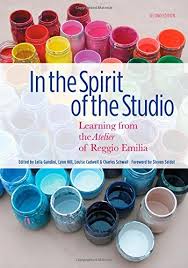“My philosophy of education is focused on helping students recognize their strengths, and encouraging them to be active participants in their own learning. I believe all learners should have the opportunity to feel successful and that the process of learning is more important than the outcome.
I hope to inspire students to be life-long learners by encouraging them to ask important questions, try new things and believe in their abilities.
I view children as protagonists in their learning. I view childhood as inherently creative and believe children are capable of rich understanding and thinking. I believe that children have one hundred languages. This means that students have many ways of expressing themselves, showing their understanding, creating and manipulating knowledge and contributing to their environment. I see children in this way because I take the time to stop, listen and observe. I include children in creating the framework for learning by honouring their interests, recording their ideas and facilitating their discussions. I believe that it is my duty as a teacher to honour the one hundred languages of childhood.
My classroom is a place and a space for learning and for thinking. In my
classroom there is a rich culture of thinking and play. There is an emphasis on
project based learning and inquiry and students are the co-constructors of
knowledge. They contribute ideas and direction to authentic topics and projects.For this type of learning to be possible respect and community are the pillars of the classroom environment. The projects my class works on are highly collaborative and students need to work together to be successful. Collaboration is simultaneously the means to the goal and the goal itself.
To facilitate success I provide the learners with space and agency to make choices and ask questions. This space allows the students to develop the social emotional skills and competencies required to contribute to a collaborative environment.”
Children are protagonists
I view children as protagonists in their learning. I view childhood as inherently creative and believe children are capable of rich understanding and thinking. I believe that children have one hundred languages.
Teachers are engaged community members
To facilitate success I provide the learners with space and agency to make choices and ask questions. This space allows the students to develop the social emotional skills and competencies required to contribute to a collaborative environment outside of the classroom too. I seek opportunities to connect classroom learning to community contexts. I model what it is like to be engaged in taking care of others, taking care of ourselves and to taking care of our surroundings.
Understanding can be demonstrated in many ways
Students have many ways of expressing themselves, showing their understanding, creating and manipulating knowledge and contributing to their environment.
There are infinite possibilities in the way that children can construct knowledge as children are inherently creative.
I see this in children when I take the time to stop, listen, observe and document their participation in the classroom environment.
Playing, playfulness and play are a part of learning at all ages
I include children in creating the framework for learning by honouring their interests and imagination. Play is highly regarded in my classroom and playfulness in learning is respected and valued.
Learning is continuous and doesn’t happen in discrete units, all subject matter can be “cross curricular”
Children interact with the world in a holistic way and want to represent their knowledge. Subject areas and curriculum outcomes can be branches for student interest instead of limiting ideas.
Behaviour is communication
Behaviour is one of the hundreds of languages of childhood. Children show you their experiences through their behaviour, wether it be positive or maybe even difficult. “Listening” to behaviour allows me to connect with students even in challenging circumstances.
Children with special needs have special rights
I believe all learners should have the opportunity to feel and to be successful. I believe that the process of learning is more important than the outcome. I want to focus on students recognizing their own strengths.
